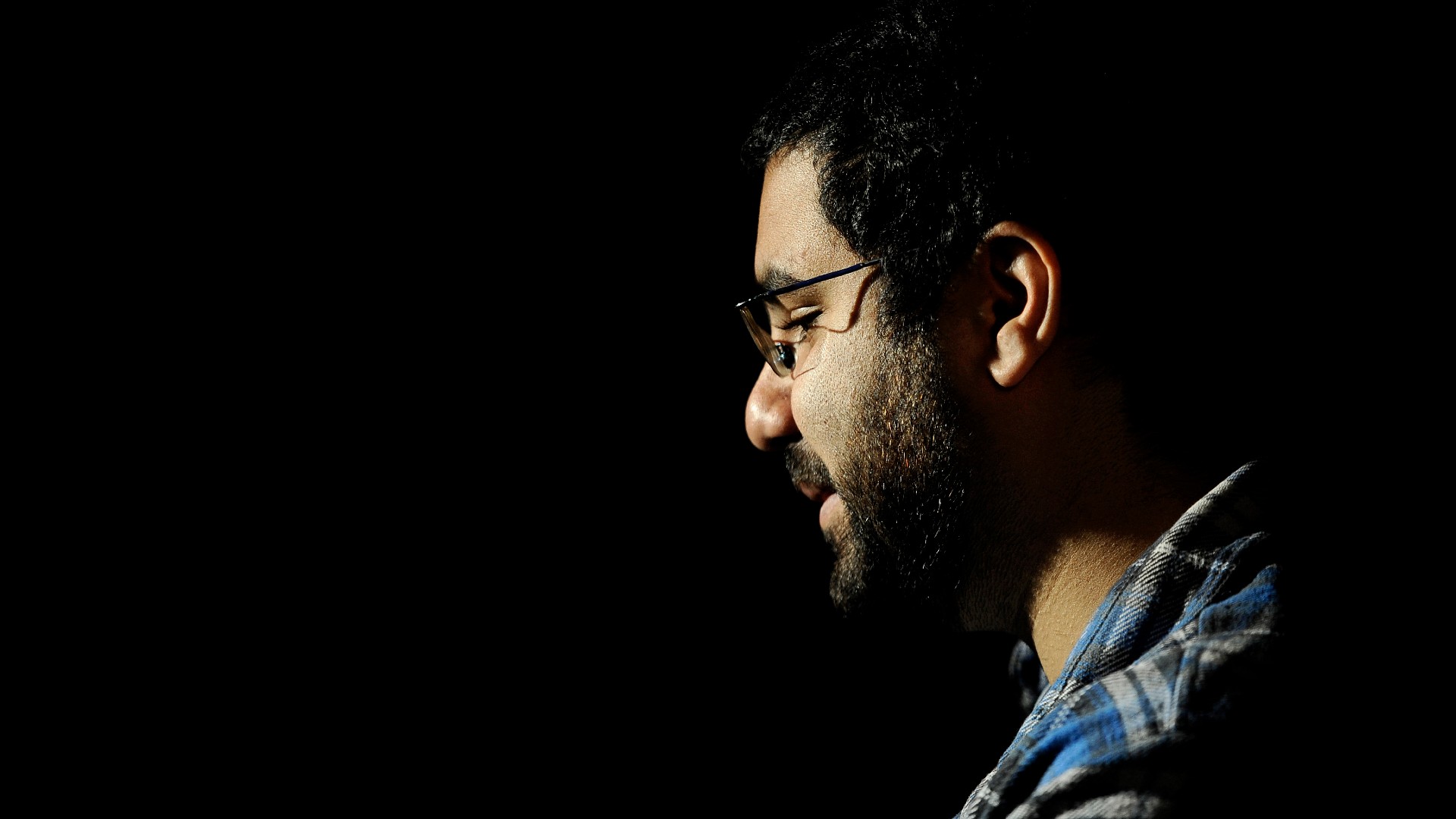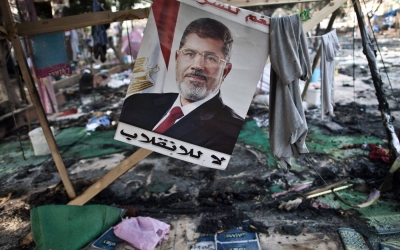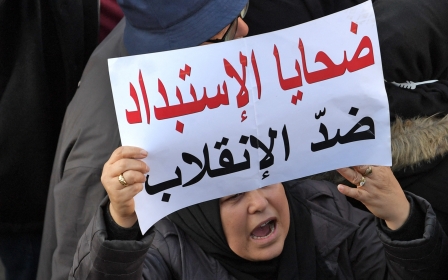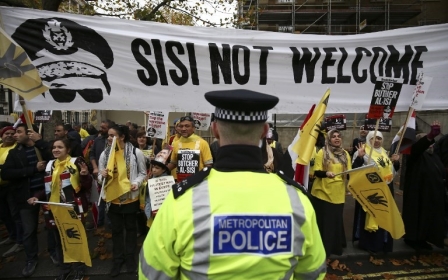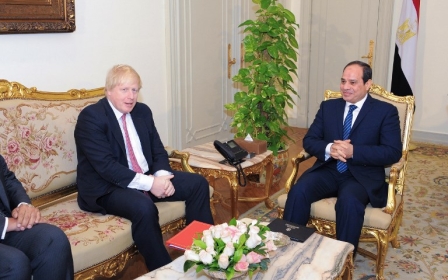It's time Liz Truss spoke out in defence of democracy in Egypt
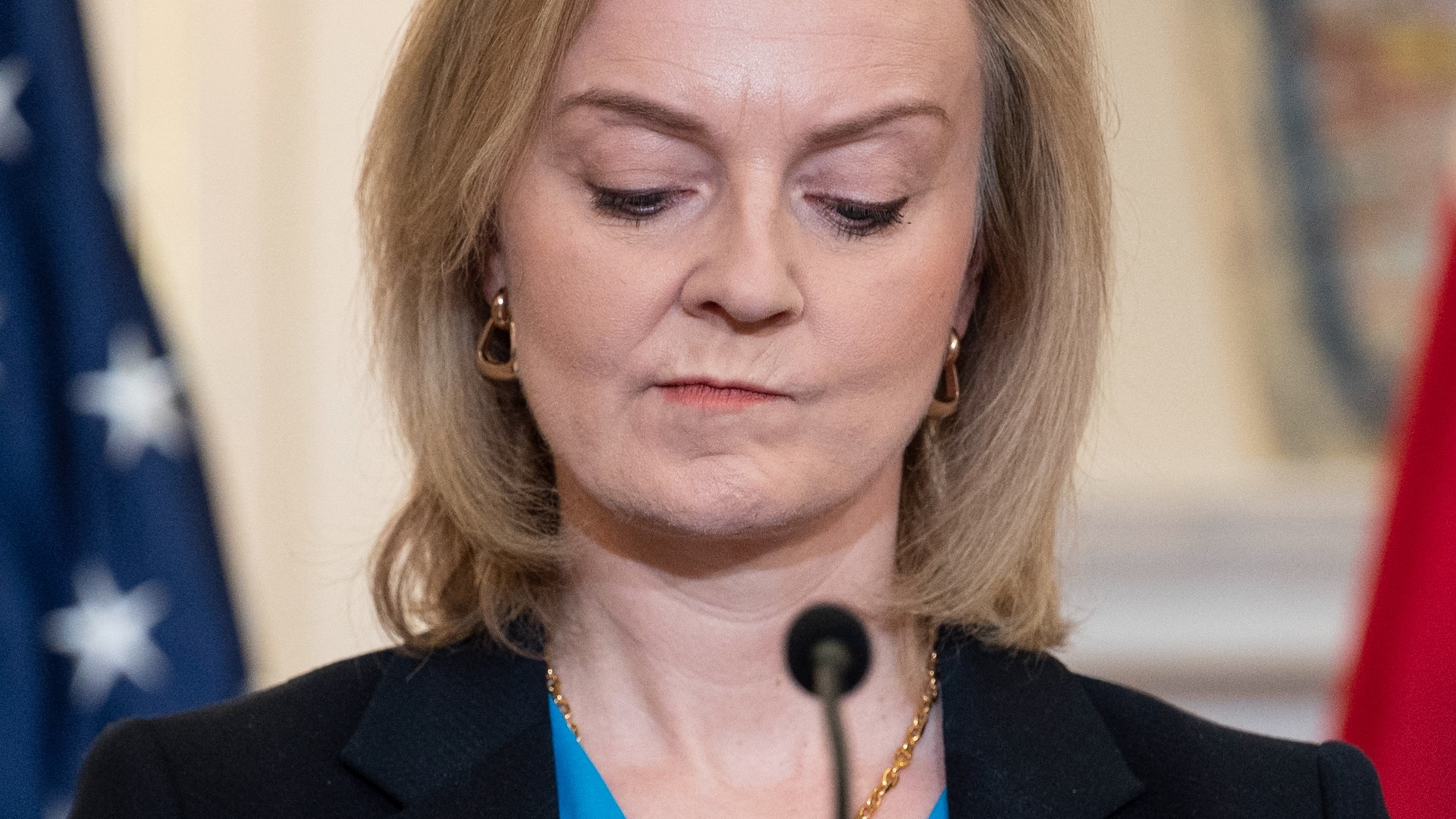
British Foreign Secretary Liz Truss loves to voice her support for what she calls "freedom and democracy".
It’s a worthy sentiment, and how wonderful it would be if she - and the British state she represents on the international stage - truly did stand up for these sacred values. Regrettably, there is a serious problem with Truss’ use of the term.
The British foreign secretary, my research suggests, stands up for freedom and democracy only when it is under threat from Britain’s enemies. When our friends and allies incarcerate, torture and execute political opponents, the British foreign secretary tends to forget about freedom and democracy.
To be fair to Truss, this selective interpretation of human rights abuses did not start with her time at the Foreign Office.
When current British Prime Minister Boris Johnson was foreign secretary, Britain was strangely supportive of the murderous Myanmar government as it carried out mass killings of the local Rohingya, with one of his junior ministers appearing to blame the Rohingya themselves.
The apparatus of repression
This gross hypocrisy is especially notable across the Middle East. As I explain in my new book, Fate of Abraham, the UK is a core part of the apparatus of repression in Saudi Arabia, Egypt, the United Arab Emirates, Bahrain and elsewhere.
The UK supplies arms and provides advice and training for the police and security forces in regimes dedicated to the suppression of the freedom and democracy that Truss claims to cherish.
This means that opponents of Arab dictatorships become opponents of Britain as well. The latest victim of this twisted, perverted and hypocritical strategy is Alaa Abd el-Fattah, the distinguished Egyptian writer and political activist.
Recently the British publisher, Fitzcarraldo Editions, published a collection of his work, all of which was written in jail, translated by family and friends.
In a review for Middle East Eye last January, Hamid Dabashi placed the book in the tradition of habsiyat (prison writing) dating back to the philosopher-mystic Ayn al-Qudat al-Hamadani. In a haunting comparison Dabashi noted parallels with al-Hamadani’s “exquisite text Shakwa al-Ghraib (The Stranger's Complaint) which he wrote while in jail in Baghdad, before he was executed on charges of heresy in his hometown of Hamadan.”
Some western readers might ponder similarities with Antonio Gramsci’s Prison Notebooks.
A painful deprivation
Abdel Fattah has been in and out of jail (mainly in) since General Abdel Fattah el-Sisi came to power in a coup d’etat nine years ago. Until last week there were no windows in his cell. He was never allowed out for exercise and has no means of finding out what time of day it is. He was not allowed books, pen or pencil – for a writer an especially painful deprivation.
Alaa's real crime is standing up for freedom and democracy - that cause apparently so close to Liz Truss’ heart
Perhaps bowing to growing public pressure, the Egyptian authorities have slightly improved his condition. From Thursday he can read books and has been allowed pencil and paper - his family tells me that last night he was allowed to send a letter to his mother, British-born Laila Soueif.
In 2019 he was sentenced to five years in jail for sharing a Facebook post about the terrible conditions in Egyptian prisons - though it’s hard to be certain of the facts because Abdel Fattah was not allowed access to his lawyers, who never got access to his case file, and neither the defence nor the prosecution actually presented their case.
In any case his real crime is standing up for freedom and democracy - that cause apparently so close to Liz Truss’ heart.
Alaa Abd el-Fattah is one of thousands of people held in abominable conditions in Egyptian jails. A huge number of them – perhaps as much as half, though no one knows - are political prisoners like Alaa guilty of no crime beyond principled opposition to dictatorship.
His case is unusual because he’s a British citizen – and still the foreign secretary won’t stand up for him.
The British embassy has done its best. Repeated demands for consular access have been turned down. If Truss’s professed concern for freedom and democracy had been real rather than fake, she would have made a noise about this.
Her failure to do so is a consequence of Britain’s policy of unconditional support for General Sisi.
The leading apologist
To be fair to Truss this dates back to the Sisi’s seizure of power from the democratically elected government of Mohamed Morsi in 2013. Britain obliged Sisi by never using the term coup d’etat (though we have never gone as far as US Secretary of State John Kerry who in a surreal moment praised the general for “restoring democracy”).
But Britain has never complained about the mass murder of Egyptian citizens by the regime or about the torture and rape of political prisoners. We have, however, praised Sisi for "building a more stable, more prosperous and more democratic future” while continuing to supply arms.
British policy is driven entirely by our economic interests, as Mark Curtis articulated when he described Britain as Sisi’s “leading apologist” in this article for Middle East Eye.
On 2 April, Alaa Abd el-Fattah went on hunger strike in a bid to force the Egyptian government to provide him access to the British embassy, and for more humane conditions in prison.
It’s time that Liz Truss woke up to her obligations and spoke out against the incarceration not just of Alaa Abd el-Fattah, but every other political prisoner rotting in Egyptian jails.
The views expressed in this article belong to the author and do not necessarily reflect the editorial policy of Middle East Eye.
Middle East Eye propose une couverture et une analyse indépendantes et incomparables du Moyen-Orient, de l’Afrique du Nord et d’autres régions du monde. Pour en savoir plus sur la reprise de ce contenu et les frais qui s’appliquent, veuillez remplir ce formulaire [en anglais]. Pour en savoir plus sur MEE, cliquez ici [en anglais].



